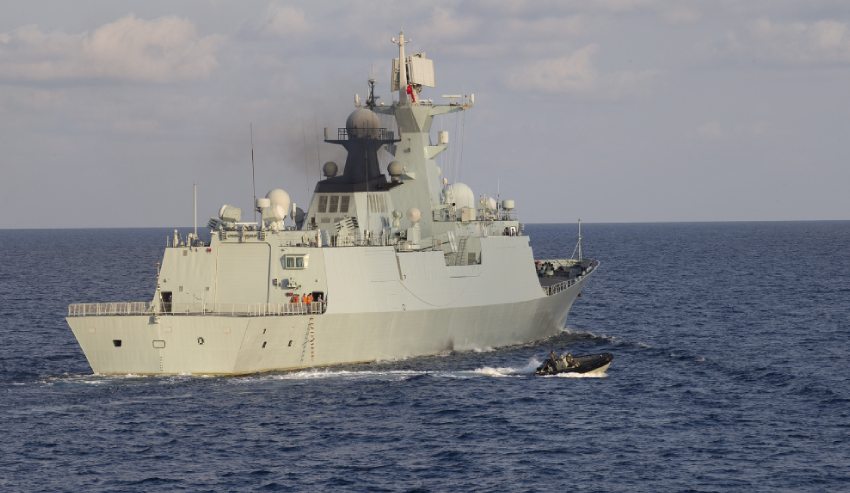Australia’s largest multilateral maritime and air exercise, KAKADU 2018, has ended after a fortnight of activities aimed at enhancing regional maritime security.
To continue reading the rest of this article, please log in.
Create free account to get unlimited news articles and more!
Defence Minister Christopher Pyne said KAKADU was a military highpoint for Australia as well as a significant diplomatic achievement.
For the first time China participated in a KAKADU exercise, sending Type 054A frigate Huangshan and her 165 crew members.
This is a modern vessel, slightly larger than an Anzac frigate with 26 in service with the People’s Liberation Army Navy (PLAN) and more under construction.
KAKADU 2018 followed Pitch Black 2018, the major air exercise conducted over the Top End.
KAKADU participating vessels conducted a range of exercises in the seas off Darwin.
Minister Pyne said the size and success of KAKADU was evidence of Australia’s growing reputation as a trusted and capable regional partner.
“The exercise provided a useful opportunity to work with naval forces from across the Indo-Pacific and promote greater levels of regional military co-operation,” he said.
“We look forward to working with such a diverse group of nations again in the future.”
During the exercise, participants, split into three task groups to test their abilities to work together in a range of scenarios.
That included live firing, air defence, navigation, refuelling, ship-to-ship communications as well as humanitarian aid and disaster relief activities.
This wasn’t just for large warships. KAKADU also saw several south Pacific nations conducting activities focused on patrol boat operations and capabilities, designed to increase regional interoperability.
“The attendance of Papua New Guinea, Cook Islands, Fiji and Timor-Leste was particularly pleasing, providing an opportunity to strengthen patrol boat interoperability and people-to-people links,” Minister Pyne said.
“Australia will build on the lessons learned from KAKADU 18 as we continue to enhance our security partnerships across the region.”
Participating nations at KAKADU included Australia, Bangladesh, Brunei, Cambodia, Canada, Chile, China, Cook Islands, Fiji, France, India, Indonesia, Japan, Malaysia, New Zealand, Pakistan, Papua New Guinea, Philippines, Republic of Korea, Singapore, Sri Lanka, Thailand, Timor-Leste, Tonga, United Kingdom, United Arab Emirates, United States of America and Vietnam.
KAKADU 2018 ran from 30 August to 15 September and involved 23 ships and submarines, 21 aircraft and more than 3,000 personnel and observers from 27 nations.
This was the 14th in the KAKADU series, with the exercises held every two years.

 Login
Login







